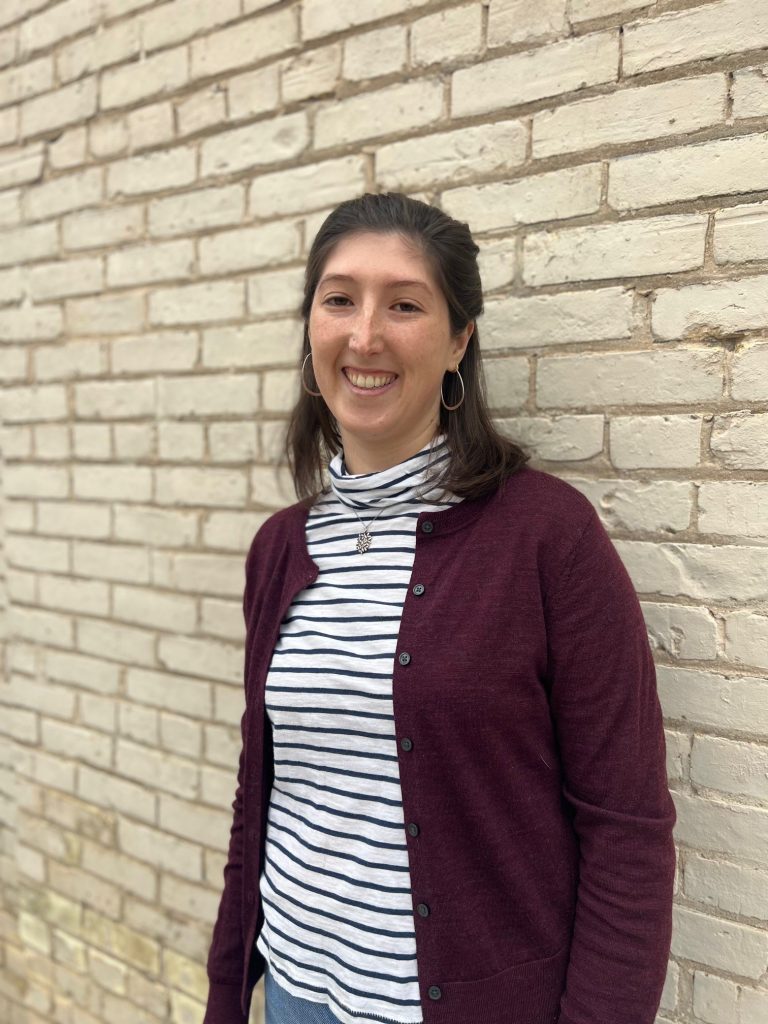Clean Wisconsin has a new Energy Manager! A recent graduate of the Energy and Resources Ph.D. program at UW-Madison, Dr. Ciaran Gallagher specialized in energy analysis and policy. Ciaran’s research interests lie at the intersections of climate change mitigation, air pollution, public health, and environmental justice. We sat down with Ciaran to learn about vision for the future of our energy program.
Q: Welcome to Clean Wisconsin, Ciaran! What are you most excited about accomplishing in your role as Clean Wisconsin’s Energy Manager?
Thank you! I am eager to get to work supporting the transition away from dirty fossil fuels and towards a cleaner, healthier energy system that works for all Wisconsinites. By collaborating with my colleagues and partner organizations across the Midwest, I hope to advocate for more energy efficiency programs, renewable energy deployment, and a carbon-free electricity grid.
Q: Much of your doctoral research has focused on co-benefits of clean energy adoption, what are these co-benefits and why are they valuable?
I am inspired by the fact that the clean energy transition will not only mitigate the climate crisis but also provide immediate and local public health benefits through reduced air pollution. Decarbonization can also help alleviate the unjust air pollution burdens faced by communities of color. Understanding and leveraging the co-benefits of carbon-free energy offers us an opportunity to implement synergistic policies that integrate climate change mitigation, public health benefits, and environmental justice goals.
Q: Transmission advocacy will be a key part of your new role, why is transmission important and how can Wisconsin leverage it to accelerate clean energy adoption?
We cannot decarbonize at the scale and speed needed to meaningfully address climate change without more transmission lines. These lines allow for the best utilization of renewable resources by transmitting electricity generated from sources from where those resources are plentiful. A robust transmission system can also help manage the balance of the power grid, which will be especially critical as we add more renewable sources. Despite their construction costs, investing in high voltage transmission will return economic, environmental, and social benefits to consumers.
Q: Are there specific energy models that are particularly exciting to you?
I am excited by Minnesota’s process of performance-based regulation development and the adoption of standards for their largest utility that incentivize environmental performance and affordability, among other things. In many states, including Wisconsin, utility profits are tied to infrastructure construction. A novel and better way to think about utility finances would be tying incentives to their performance, measuring outcomes like affordability, reliability, energy efficiency, and carbon reduction. The Public Service Commission of Wisconsin has sought public input on performance-based regulations, a great first step in reshaping Wisconsin utility regulation to better serve the public.
Q: How important is it for us to focus on diversifying our energy sources in Wisconsin?
Cutting greenhouse gas emissions will require electrifying buildings and cars, which will double Wisconsin’s electricity demand according to the recent study by Clean Wisconsin, RENEW Wisconsin, Evolved Energy Research and GridLab. Not even our current electricity demand can be met by rooftop solar and battery storage alone. All types of clean energy sources will be needed to achieve the energy transition at the necessary timescales.
Q: Federal incentives and rebates are making clean energy more accessible to Wisconsinites. How can Wisconsin families best take advantage of these incentives to save money and limit their carbon footprint?
The new federal funding is a game changer in increasing access to renewable energy and electric home appliances. For detailed information on all of the tax credits and rebates available, I suggest looking at White House guidance.
I also want to highlight the existing energy efficiency incentives through Focus on Energy, Wisconsin’s statewide energy efficiency program. For every dollar invested in the program, Wisconsin reaps more than $4 of benefits. But for Wisconsin families, it means that they can receive rebates for insulation, smart thermostats, and more.
Q: The burden of financial disparity, health outcome inequality, and environmental risk is disproportionately borne by disadvantaged communities in Wisconsin. How can we decrease the energy burden on these communities?
As Energy Manager, I will work with my colleagues at Clean Wisconsin and other stakeholders to advocate for fair and reasonable rates in future cases in front of the Public Service Commission. In addition, weatherization and other energy efficiency programs are critical to reducing energy burdens for historically underserved communities while making homes more comfortable and safer.
Q: How can Clean Wisconsin members and environmental advocates across Wisconsin get involved with the Energy Program and support your work?
Achieving the needed swift and just energy transition will require embracing change. I urge members to talk to your family and neighbors about the importance of clean energy system, as well as the opportunities and benefits that these changes will bring to the local economy and environment.

